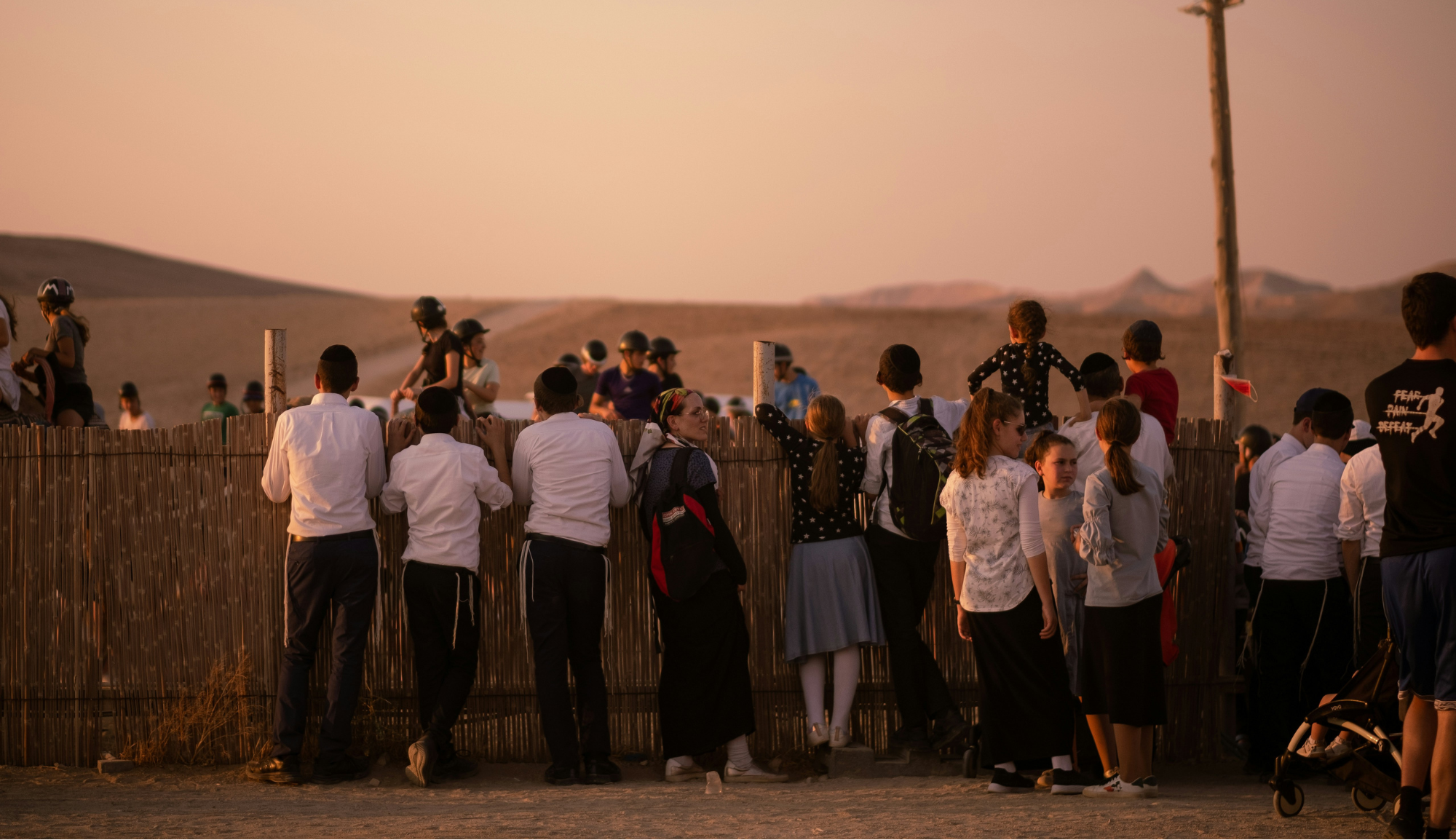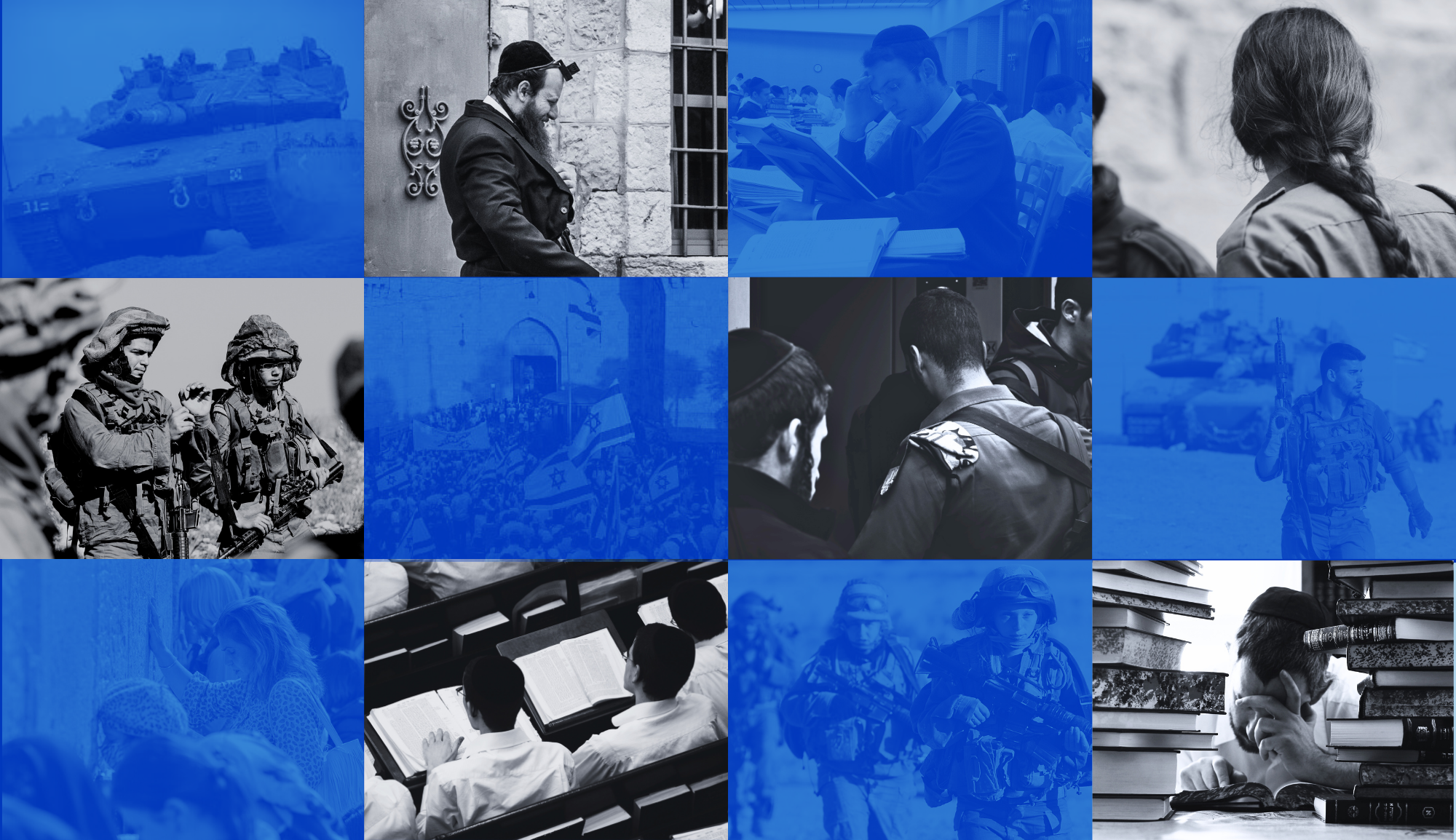The first time I traveled back to America after my parents had made aliyah was an emotionally difficult experience. I tried to put my finger on what felt so tough. Was it the fact that my father wasn’t at the airport to greet me early in the morning with his big, enveloping hug as he always had been? Was it the knowledge that my parents’ house of over 40 years had been sold and that I no longer had a physical home in America? Both experiences were new and strange, but I sensed it was something else: I no longer really felt at home.
It was, and continues to be, unsettling to feel somewhat disconnected from the country and communities that nurtured me for 31 years and helped me develop into who I am today. It is unnerving to no longer recognize myself there. I am still surprised by the internal dissonance I feel when traveling to spaces that were once so comfortable and natural for me to inhabit.
I no longer really felt at home.
For the first 10 years after my aliyah in 2011, every trip I made back to America was a warm embrace. Not just from my parents, but from everything familiar that I had left behind, both profound and mundane: the golden leaves of the fall foliage, the squirrels on the suburban front lawns, the tunes sung on Shabbos morning in shul, the glossy cars, the impressive facilities of American yeshiva high schools, the two-liter soda bottles, the customer service, the food of my childhood, and, of course, Target. But after a decade of life in Israel—living in Gush Etzion, teaching at an Israeli institution, and watching my children grow into young Israeli adults—I suddenly felt that I was no longer quite American. And yet, at the same time, I also knew that I would never be fully Israeli.
Living life in the space between my rich, American Modern Orthodox upbringing and my present day-to-day experiences in the Dati Leumi community in Israel has forced me, together with my husband, Judah, to think a lot about the differences between the world we came from and the world we now inhabit. Before we made aliyah, we knew that moving halfway around the globe would entail learning a new language and a new culture. What we did not realize was how deeply our spiritual and internal makeup would be impacted and influenced as well.
Israel’s Religious Zionist community (usually referred to in Israel as “Dati Leumi”) is not a direct parallel to America’s Modern Orthodox community. While they are certainly ideological counterparts, their underlying makeup, values, and driving forces do not always overlap. Their foundational influences are different, as well as the practical ways in which life is lived.
Israel’s Religious Zionist community is not a direct parallel to America’s Modern Orthodox community.
Over our first few years in Israel, we took note of these gaps all the time. Each little difference stood out to us: the independence of young children (Why is that eight-year-old walking home by himself? Why are the teens out so late on Friday night?); the different emphases at school (Why is history only Jewish history? Why is there so much class discussion and so little development of skills? Why is the class trip another hike and not a visit to a museum?) together with the deemphasis of school in general (Why is the school day so short? Why do the kids have no homework?); the forthrightness around difficult topics (Why did they need to tell the kindergarten kids about last night’s terror attack? Why is the whole class going to a funeral?); the dress styles (Why so casual? Why are halachic people not following the patterns of dress we are used to?); the politics (Why did a teacher tell my kids who they are voting for? How did Chumash class just turn into political commentary?); and of course the chocolate spread (How does that count as a sandwich?).
Initially, the new experiences, situations, and perspectives felt like unrelated quirks. Over time, though, it became apparent that what we were observing was, in fact, interconnected and part of a much bigger whole than we had originally comprehended.
A current American student who I teach at Migdal Oz recently gave me an apt allegory. She compared her experience of immersion in an Israeli environment to someone sailing through uncharted waters. The sea is unfamiliar, and as you steer forward, you notice little pieces of ice popping above the water’s surface. Initially, you see them as disparate, but you eventually realize that if the water were to disappear, you would be looking at the jagged peaks of a single iceberg.
In that process of navigating life in Israel since our aliyah, we have come to appreciate the contrast between a community that defines itself as “Orthodox” and one that refers to itself as “dati” (religious), along with the difference between being “modern” and being “leumi” (nationalistic).
Orthodox and Dati
“Orthodox” literally means conforming with established or accepted standards, whether in beliefs, behaviors, or attitudes. Specifically in the Diaspora, where there is a real risk of assimilation, conforming with the communal guidelines of halacha is what has enabled and facilitated Jewish survival. This emphasis on halacha serves the primary goal of Orthodox communities in the Diaspora in perpetuating our mesorah, or heritage, and maintaining Jewish identity. In the education that I received in America, following rules and norms was given center stage. Religious observance and adherence were the ultimate definition of Jewish identity, and the overriding focus was on maintaining traditional Jewish practices such as praying daily, keeping Shabbat, eating kosher, following the laws of family purity, and (for the boys in my classes) wearing tzitzit.
By contrast, “dati” is often defined more broadly than just observance of rules. While halacha is seen as the essential framework for living a religious life, elements of being “dati” can include feeling connected to God, to spirituality, to prayer, to Torah learning, and to religious values and ideals. This, I think, helps explain the ever-growing “retzef dati,” the religious spectrum, in Israel. Israelis will sometimes define themselves along a continuum that doesn’t fit neatly into the definitions I was more used to in America, where Orthodoxy is often spoken about in binary and dichotomous terms.
In America, you were either Orthodox or not. On the derech or off of it. In or out. But in Israel, the term dati lends itself to something more fluid.
In America, you were either Orthodox or not. On the derech or off of it. In or out. But in Israel, the term dati lends itself (for better or for worse) to something more fluid. While the laws are considered crucial, they are not viewed as the endpoint of religiosity but, rather, more of a starting point for developing a deep, connected, and spiritual relationship with your Judaism and with God. Furthermore, because Israelis live in a Jewish state, the fact that there is less fear around assimilation and intermarriage is also a contributing factor.
Modern and Nationalistic
While Orthodox and dati might be different, they still overlap on a shared plane. “Modern” and “leumi,” however, belong to different realms altogether. “Modern” means to relate to present or recent times, as opposed to being stuck in the past. In the American Modern Orthodox community, this concept is often expressed through engaging with the world around us, dialoguing with its value systems, and taking from the best (and sometimes more) it offers. It is the belief that we benefit religiously from being connected to God’s world, in all of its glory, and from not shying away from the complexity of experience. In the words of Rabbi Aharon Lichtenstein, “Properly approached and balanced, general culture can be a genuinely ennobling and enriching force.”
In the Dati Leumi community in Israel, the emphasis is placed not on modernity but on a national identity that is deeply connected to and ready to sacrifice for the country. This manifests itself in enthusiasm for the army, in teens feeling passionate about politics and getting involved with campaigns years before they can vote, and in the seriousness with which the holidays of Yom Ha’atzmaut and Yom Yerushalayim are celebrated. In American high schools, students are encouraged to develop themselves and their talents through extracurriculars and AP-level courses to attend prestigious colleges. In Israeli high schools, students are encouraged to know and love the land, and to serve their country and their people. Their next steps not college and university but national service in either military or civilian roles.
These differences between communities are real and significant, and they affect a wide array of aspects of day-to-day lives. Since making aliyah, we have tried, as many immigrants do, to hold onto and pass on the elements that are valuable to us from the culture we came from while also embracing new ideas, perspectives, and approaches. The American Modern Orthodox community gave us a lot that is deeply meaningful, but we also moved to Israel and chose to make this country our home and the home of our children.
I realized for the first time how much my internal emotional experience and my sense of self have been affected by our aliyah.
On that jolting but eye-opening trip to America a few years ago, I realized for the first time how much my internal emotional experience and my sense of self have been affected by our aliyah. I internalized that I am no longer an American expatriate but a mix of my past and present life. In our home with our children and at work with our students, my husband and I talk about these issues often. We strive to integrate and synthesize the best values we have been exposed to, even when it is not always easy. We attempt to hold onto and live with the tensions, and we continually attempt to challenge the binary dichotomies. Can we be spiritual and also halachically committed? Can we prioritize Israel and still be engaged in the world? Can we be very connected to our people and still develop ourselves as individuals? We continue to believe that it is possible.
Being an immigrant means constantly thinking about when to hold onto what is familiar, when to let go and lean into the culture of the community we now belong to and when to strike a compromise between the two. Sometimes it is lonely. Sometimes it is challenging. At times, it is indeed emotionally difficult to feel that we are not fully one thing or another. But as a whole, our exposure to and immersion in the Israeli Dati Leumi community—in addition to just living in Israel—has been an enriching, broadening, illuminating, and life-changing experience. It’s a blessing that we feel grateful for every day.
Rabbanit Shayna Goldberg teaches Israeli and American post-high school students and is the mashgicha ruchanit in the Stella K. Abraham Beit Midrash for Women in Migdal Oz, an affiliate of Yeshivat Har Etzion. She is a yoetzet halacha, a contributing editor for Deracheha: Women and Mitzvot, and the author of the book, What Do You Really Want? Trust and Fear in Decision Making at Life’s Crossroads and in Everyday Living (2021).




































